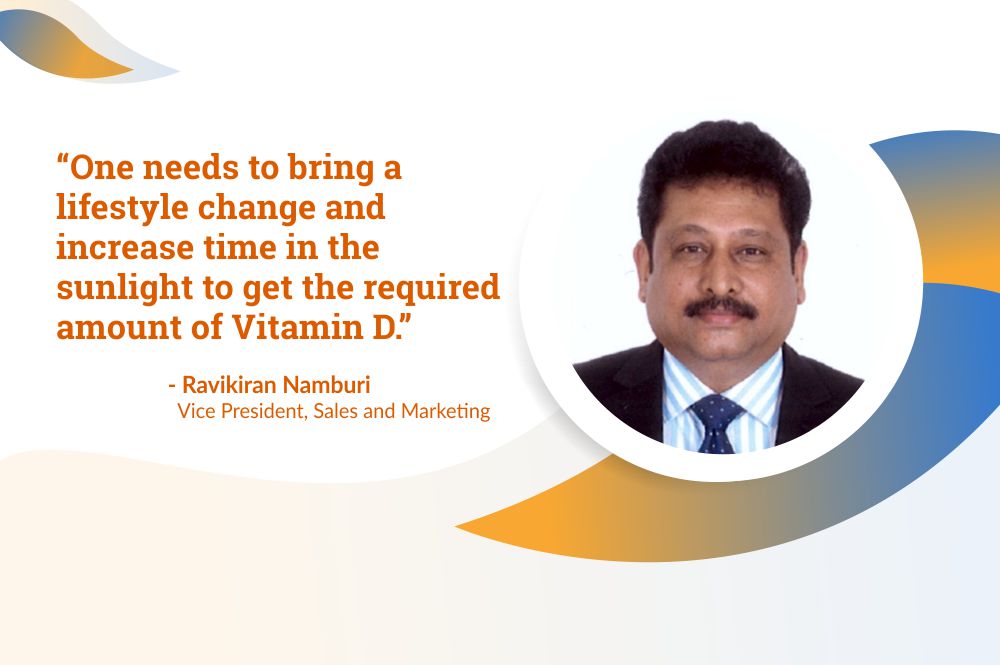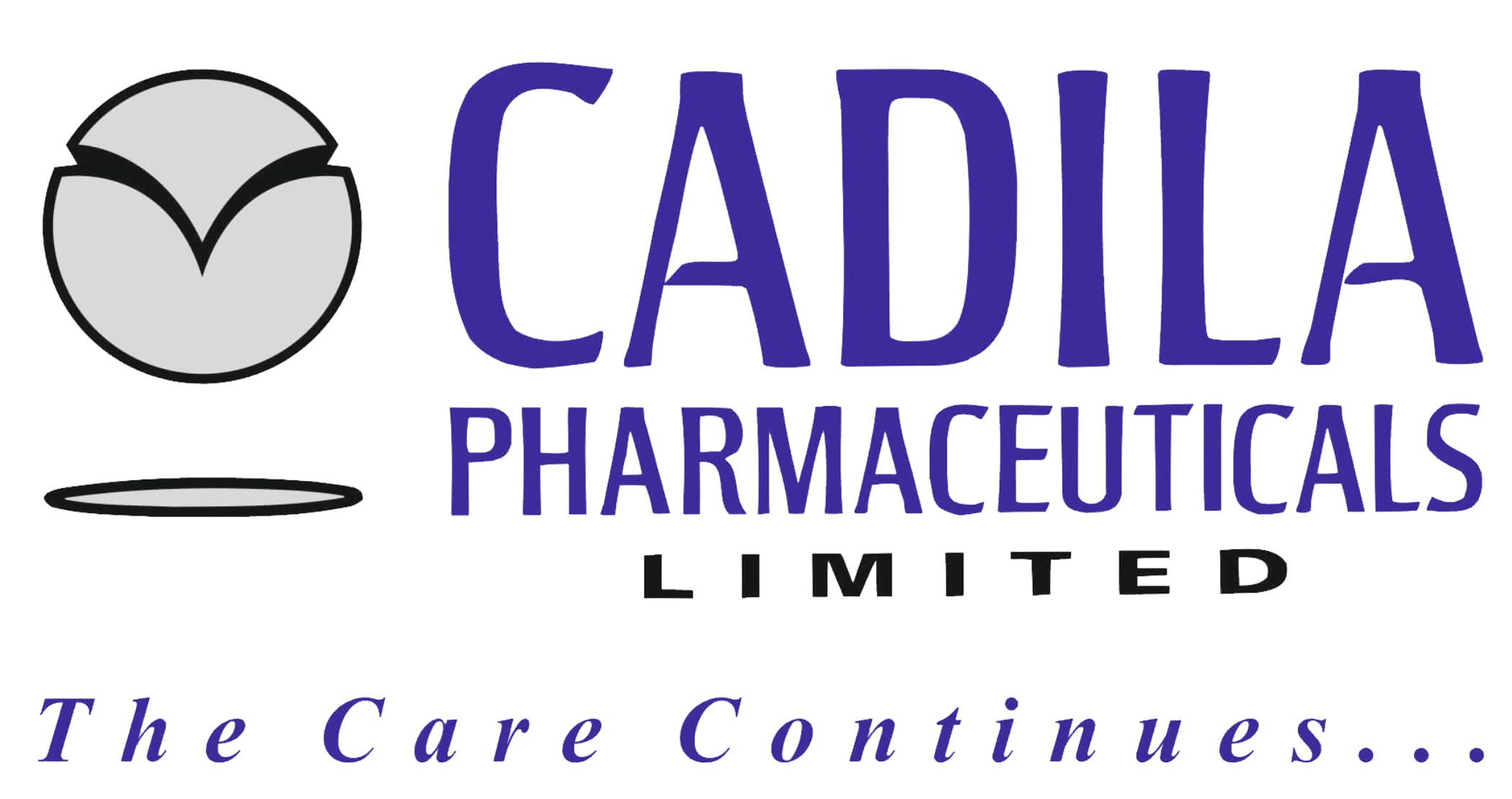

70-90% of Indians suffer from Vitamin D deficiency – Causes, deficiency symptoms and treatment options
27th Aug, 2020
According to a recent study conducted, it was found that almost 90%* of the Indian population suffers from Vitamin-D deficiency. Being an agrarian country, it comes as a surprise to see the majority of the population of the country suffering from Vitamin-D deficiency when the major source of this vitamin is the sun. We ask Mr. Ravikiran Namburi, Vice President – Sales and Marketing, Cadila Pharmaceuticals, who has been working in the healthcare industry since a long time, about what is Vitamin D deficiency, what the causes of Vitamin D deficiency are and how can it be treated.
“Vitamin D, like all other vitamins is essential for our health and well-being. Vitamin D is mostly made in the skin by exposure to sunlight. A very small amount of naturally existing food items contain Vitamin-D. Hence it is important to keep a check on the lifestyle we live. We need to get enough amount of sunlight every day and include foods that naturally contain Vitamin D such as oily fish (such as sardines, pilchards, herring, trout, tuna, salmon and mackerel), egg yolk, red meat and liver. The importance of Vitamin D cannot be understated. It has many functions, including:
- Keeping bones strong: Having healthy bones protect you from various conditions, including rickets.
- Absorbing calcium: Vitamin D, along with calcium, helps build bones and keep bones strong and healthy. Weak bones can lead to osteoporosis, the loss of bone density, which can lead to fractures.
- Decreasing an individual’s rate of getting hypertension, cancer, and several autoimmune diseases.
Vitamin D deficiency causes and symptoms
Many people have no symptoms or may complain of only vague ones such as tiredness or general aches. One might be prone to have Vitamin D deficiency because:
- Your body has an increased need for vitamin D
- Your body is unable to make enough vitamin D
- You don’t have enough vitamin D in your diet
Who all can be affected by Vitamin D deficiency?
- Growing children, pregnant women, and breast-feeding women need extra Vitamin D because it is required for growth. Vitamin D deficiency is even more likely to develop in women who have had several babies with short gaps between pregnancies. Breast-fed babies whose mothers are lacking in Vitamin D, or with prolonged breastfeeding, may also suffer from Vitamin D deficiency as there is little Vitamin D in breast milk.
- People who stay inside a lot. For example, hospital patients or housebound people
- People who cover up a lot of their body when outside or use high SPF sunscreens while going out
- Elderly people are unable to produce as much Vitamin D and are at risk of developing vitamin D deficiency
- Some medical conditions can affect the way the body handles vitamin D. People with Crohn’s disease, coeliac disease, and some types of liver and kidney disease, are all at risk of Vitamin D deficiency.
- People with dark skin need more amount of Vitamin D as their body absorbs the sunlight slowly
How Vitamin D deficiency can be prevented?
It is estimated that around 20-30 minutes of sunlight on the face and forearms around the middle of the day 2-3 times a week is sufficient to make enough Vitamin D in the summer months. This time may vary according to the skin tone and the age group that you belong to. One should be getting at least 400 International Units a day of Vitamin D.
Some people are more at risk of vitamin D deficiency and so are recommended to take Vitamin D supplements routinely. These include all pregnant and breastfeeding women, all babies and young children aged 6 months to 5 years, people aged 65 years and over, and people who are not exposed to much sun. In addition, it is advised to have routine Vitamin D supplements for people with certain gut (bowel), kidney or liver diseases. One should consult a doctor to understand how much Vitamin D they need.
Vitamin D, like any other vitamin, plays an important role in keeping your body healthy. From helping your bones stay strong, it can also play a role in preventing other serious diseases. While sunlight is the best source of getting Vitamin D, too much exposure to the sun’s rays can be damaging. Consulting a doctor for your requirement of Vitamin D and finding out the best source of it, can help you live a healthy life.”
References:

